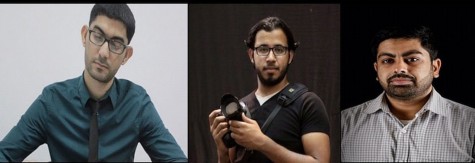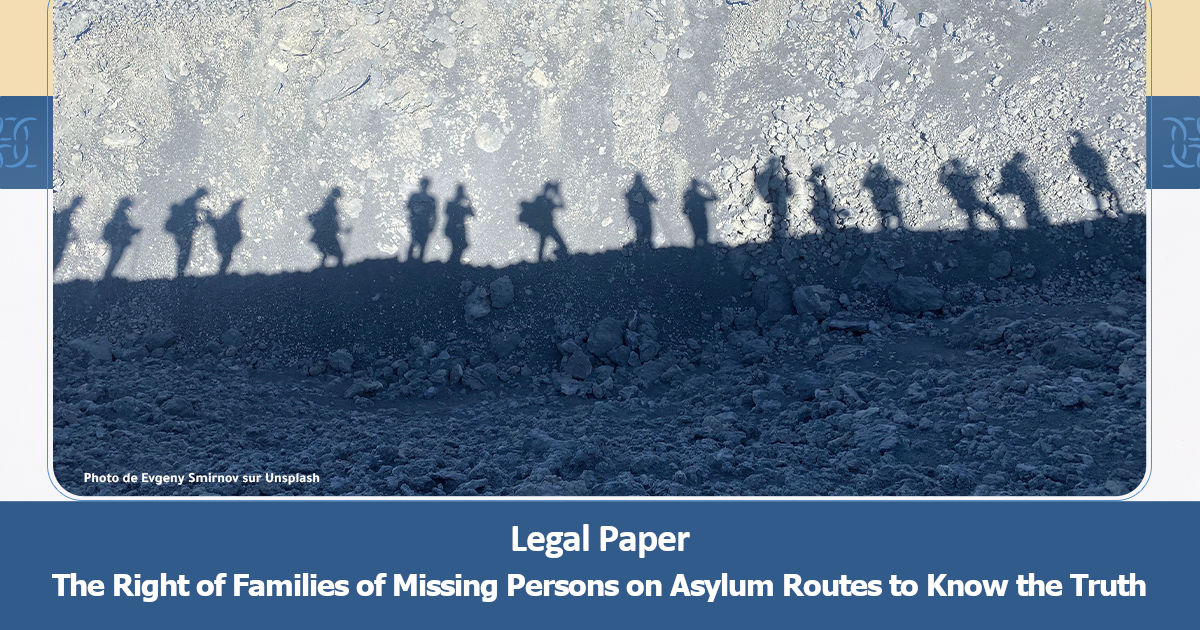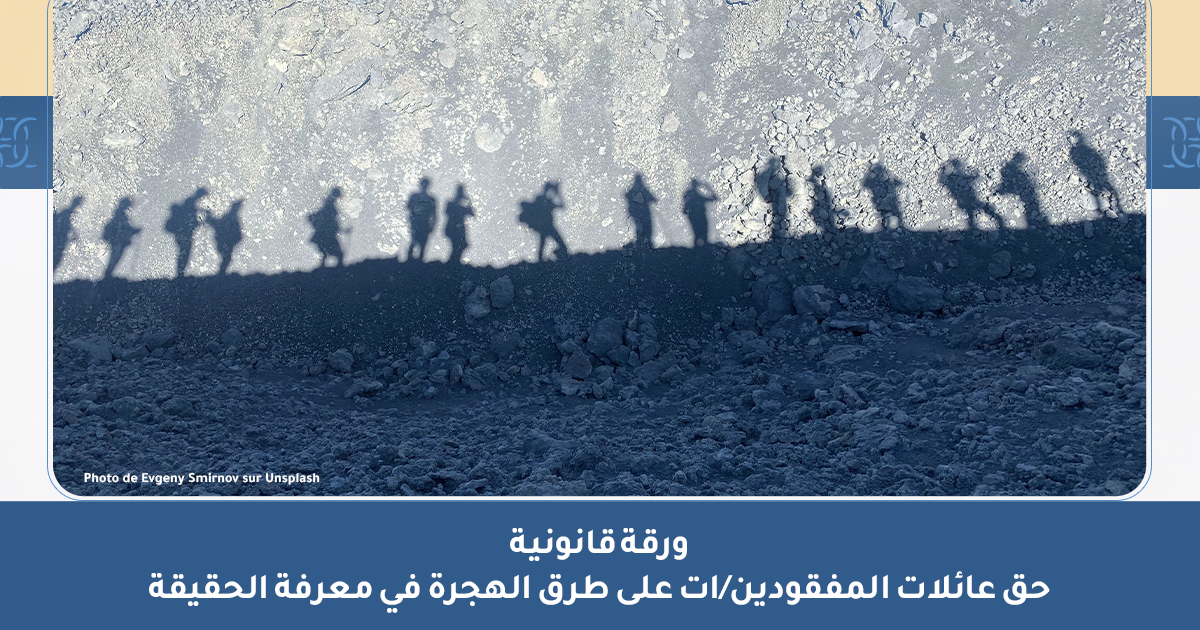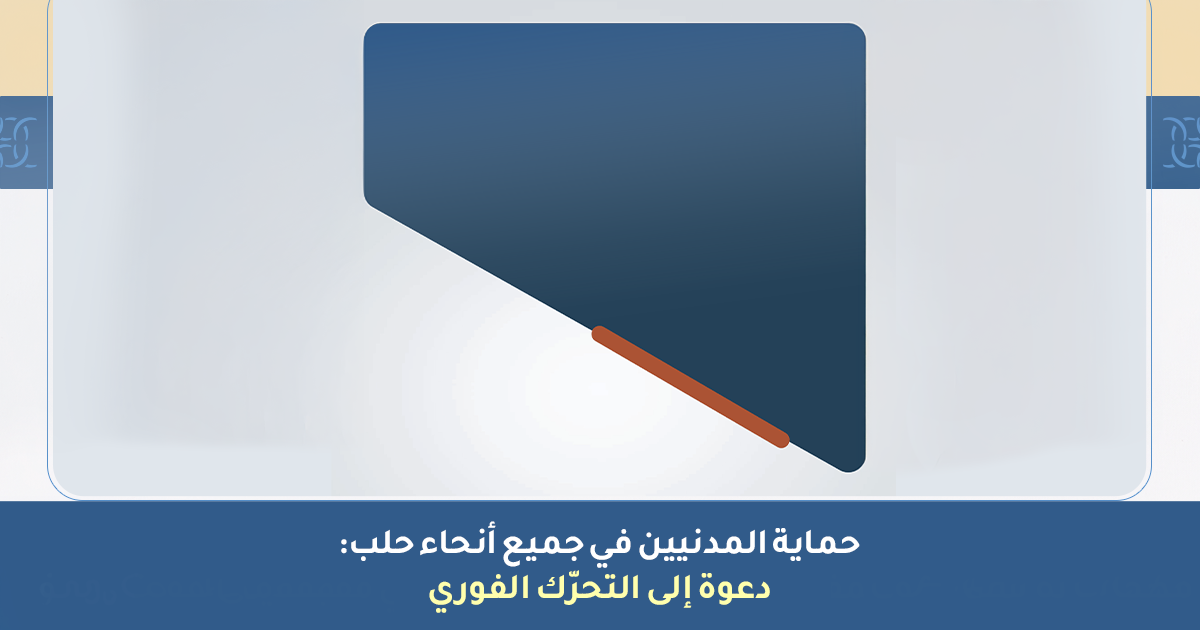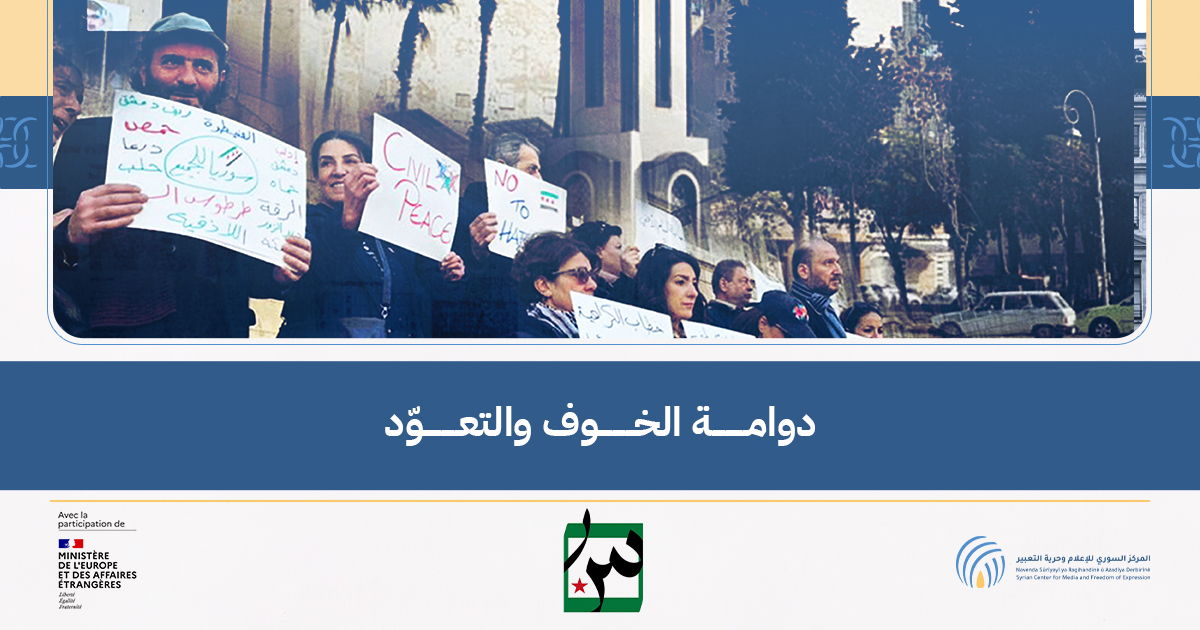Freedom of expression continues to suffer as Bahraini courts upheld harsh sentences ranging from 10 to 25 years against a journalist, online activist and award-winning photographer. The courts also revoked their citizenship, a common penalty used in the past few years which renders them stateless.
On 27 March 2018, the appeal court upheld the 10-year sentence of photographer Sayed Ahmed Al-Mousawi. On 23 November 2015, Al-Mousawi was first sentenced to 10 years’ imprisonment and had his citizenship revoked. Although the Court of Cassation overturned the ruling in early 2017, the case was sent for appeal and the case continued while Al-Mousawi was kept in arbitrary detention. He can appeal to the Court of Cassation again.
Authorities arrested Al-Mousawi (pictured above in the middle), along with his brother Sayed Mohammed, on 10 February 2014 from their home in Al-Diraz. During his detention at the Criminal Investigations Directorate (CID) for six days, he was tortured “cruelly without mercy,” as he later told his father. Security officers hung him on a door four times, electrocuted him, and did not allow him to sit for four days. They stripped him naked, beat him and sexually assaulted him. No independent investigation into his torture allegations has ever been conducted.
After nine months of detention, he was finally brought to trial on 24 December 2014, when the prosecutor charged him with forming and participating in a terror cell, accusing him of providing SIM cards to protesters (labelled “terrorists”) and taking photos of anti-government demonstrations. He and other witnesses denied that he had anything to do with the riots.
Al-Mousawi has received a lot of international support. He has won 169 international photography prizes – a number of which he even won while in detention. He is a member of FIAP, PSA, UPI and Qatif photos.
On 11 March 2018, in a separate case, a Bahraini appeals court upheld prison sentences of 15 and 25 years against journalist Mahmoud Abdul-Ridha Al-Jazeeri and online activist Ali Al-Muraj respectively, and also upheld the sentence revoking their Bahraini nationalities. Previously, the higher criminal court of Bahrain convicted Al-Jazeeri and Al-Muraj of being members of terrorist cells.
The trial of Al-Jazeeri and Al-Muraj was held during a group trial with other defendants and was very short. The judge did not take any time to listen to the lawyer representing Al-Jazeeri and Al-Muraj.
Al-Jazeeri (pictured above left) worked for “Al-Wasat”, before it was shut down in June 2017. He was known for his criticism of both the government and leadership of civil movement in Bahrain. On 30 October 2017, Al-Jazeeri was sentenced to 15 years’ imprisonment and his nationality was ordered to be revoked.
On 28 December 2015, Al-Jazeeri was arrested during a raid on his home by security forces in plain clothes. His arrest came one day after he wrote an article reporting on the regular consultative (Shura) council’s session, during which an MP asked authorities to punish Bahrainis who had their citizenship revoked on political grounds by depriving them of government housing. He was charged with supporting terrorism, inciting hatred of the regime, having contacts with a foreign country, and seeking to overthrow the government by joining Al-Wafa and the February 14 Youth Movement. He was subjected to ill-treatment in detention including being blindfolded and not being allowed to sit or sleep for almost three days.
Al-Muraj (pictured above rights) is an online activist who has covered the civil protests in Bahrain. On 28 June 2016, he was sentenced by the criminal court to life in prison (25 years) for allegedly being a member of a terrorist cell and his nationality was ordered to be revoked. He denied all the accusations.
The Gulf Centre for Human Rights (GCHR) is deeply concerned about the systematic targeting of journalists, photographers, online activists and human rights defenders in Bahrain, where oppression under the claims of terrorism and false news is being used to silence journalists and delegitimise the work of human rights defenders.
GCHR calls on the authorities in Bahrain to:
- Respect the rights to fair trial and halt the use of terrorism laws to silence journalists and delegitimise the work of human rights defenders;
- Immediately and unconditionally release Sayed Ahmed Al-Mousawi, Mahmoud Al-Jazeeri, and Ali Al-Muraj;
- Reinstate the citizenship of release Sayed Ahmed Al-Mousawi, Mahmoud Al-Jazeeri, and Ali Al-Muraj; and refrain from revoking the nationalities of journalists and human defenders as it is a form of collective punishment against them and their families; and
- Guarantee in all circumstances that all journalists, photographers, online activists and human rights defenders in Bahrain are able to carry out their legitimate activities without fear of reprisals and free of all restrictions including judicial harassment.
